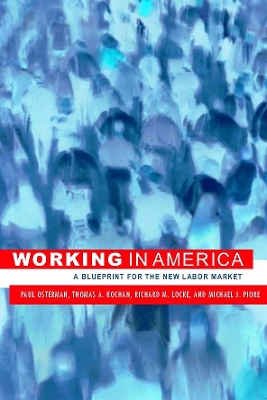The MIT Press
2 total works
We can invest in better basic education and life-long learning, and we can work toward strategies for creating and sustaining good jobs with portable benefits. We need organizations that value investors of human capital -- their employees -- as highly as they do investors of financial capital, and we need a renewed labor movement to give workers a stronger voice. Kochan lays out an agenda for working families in the twenty-first century that calls for business, labor, government, and workers to come together to make the changes that will allow us all to benefit from the new economy. The solution to our problems, he points out, is too important to be left to "the market."
Working in America
by Paul Osterman, Thomas A. Kochan, Richard M. Locke, and Michael J. Piore
A study of the changing face of the American labor market.
The American labor market faces many deep-rooted problems, including persistence of a large low-wage sector, worsening inequality in earnings, employees' lack of voice in the workplace, and the need of employers to maximize flexibility if they are to survive in an increasingly competitive market. The impetus for this book is the absence of a serious national debate about these issues.
The book represents nearly three years of deliberation by more than 250 people drawn from business, labor, community groups, academia, and government. It traces today's labor-market policy and laws back to the New Deal and to a second wave of social regulation that began in the 1960s. Underlying the current system are assumptions about who is working, what workers do, and how much job security workers enjoy. Economic and social changes have rendered those assumptions invalid and have resulted in mismatches between labor institutions and efficient and equitable deployment of the workforce, as well as between commitments to the labor market and family responsibilities. This book should launch a national dialogue on how to update our policies and institutions to catch up with the changes in the nature of work, in the workforce, and in the economy.

